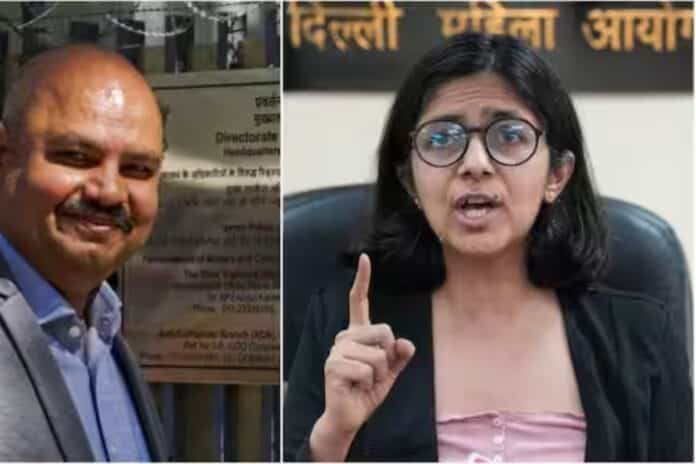Overview of the Assault Allegations
Clearly, the assault allegations against Bhibhav Kumar stem from an incident involving Rajya Sabha MP Swati Maliwal, who accused him of assaulting her at the official residence of Delhi Chief Minister Arvind Kejriwal on May 13. Although Kumar’s political affiliation with the Aam Aadmi Party (AAP) has fueled public interest, the party has denied the allegations raised by Maliwal, complicating the narrative surrounding this case.
Details of the Incident Involving Swati Maliwal
Maliwal reported the assault to authorities shortly after the alleged incident took place, stating that Kumar physically attacked her at the Chief Minister’s residence. Following this accusation, Kumar was arrested on May 18, leading to significant media coverage and public scrutiny.
Incident details indicate that Kumar was accused of causing simple injuries to Maliwal, as highlighted in medical reports reviewed during the legal proceedings. The situation escalated into a formal investigation, culminating in a chargesheet being filed against him. You should note that Kumar’s arrest and subsequent legal journey have raised questions about the intersection of politics and personal conduct, particularly given Maliwal’s influential role within the government and the ongoing support she receives from her party, AAP.
Arguments Presented by the Defense
Arguments for Bhibhav Kumar’s defense emphasized that he had been incarcerated for over 100 days, and that the injuries alleged by Swati Maliwal were classified as simple. The defense argued that an extensive delay in the trial process could lead to undue hardship for Kumar, especially considering that a chargesheet had already been filed in the case.
Court’s Observations on Witnesses and Bail Conditions
Any observations made by the court highlighted the significance of ensuring that witnesses are not influenced during the trial. The justices noted the need for a fair process, stating that important and vulnerable witnesses should be examined first to maintain the integrity of the proceedings.
Presented with the information regarding the case, the court announced that it would implement measures to protect witnesses from potential coercion. The bench ordered that Kumar must refrain from entering the Chief Minister’s residence until all witnesses have testified. Such conditions are designed to ensure that the trial can be conducted without disruption, thereby promoting a just legal process.
Final Ruling on Bail and Restrictions Imposed
Defense attorney highlighted the court’s decision to grant bail to Bhibhav Kumar while imposing significant restrictions to safeguard the proceedings. The ruling allows Kumar to secure his freedom, but he must adhere to guidelines that limit his interaction with sensitive witnesses and his association with the AAP political office.
Observations from the court emphasized the necessity of balancing personal freedom with the integrity of the judicial process. While extending bail, the Supreme Court indicated that Kumar cannot resume his role as Personal Secretary to Delhi Chief Minister Arvind Kejriwal nor make comments through his political party until the trial concludes. This ensures that the legal process remains unaffected by external influences.
Impact on Bhibhav Kumar’s Political Career
Little is known about the long-term effects this legal battle may have on Bhibhav Kumar’s political career. While the Supreme Court has granted him bail after 100 days in custody, the conditions stipulate that he cannot resume his role as Personal Secretary to Chief Minister Arvind Kejriwal until the trial concludes. This uncertainty could hinder his political aspirations and reputation within the Aam Aadmi Party (AAP), particularly as the case unfolds in the public eye.
Reaction from Aam Aadmi Party and Other Stakeholders
Some reactions have emerged following the Supreme Court’s decision, primarily from AAP and various political commentators. The party has maintained its stance of denial regarding the allegations from Rajya Sabha MP Swati Maliwal, and they have refrained from making further comments as directed by the court to avoid influencing the ongoing trial.
Stakeholders across the political spectrum have weighed in on the implications of this case. AAM representatives have cautiously supported the judicial process, highlighting the importance of due process while avoiding public condemnation or speculation about the allegations against Kumar. AAP’s strategy involves maintaining a low profile in public discussions, likely to preserve the party’s image amid the legal proceedings, while also addressing the safety and rights of the involved parties. The insistence on not commenting further reflects a strategy to mitigate any potential fallout during a sensitive trial period.
Timeline for Witness Examination
Timeline for the examination of witnesses in the Bhibhav Kumar case will be crucial. The Supreme Court has emphasized that nearly 51 witnesses need to be examined. The bench has directed that important and vulnerable witnesses should be prioritized, indicating that this process may take time before the trial can progress effectively.
Expected Developments in the Trial
Developments in the trial are anticipated to unfold as the prosecution prepares to examine witnesses. With the Supreme Court’s directive that Bhibhav Kumar shall not enter the Chief Minister’s residence until all witnesses are examined, it sets a clear framework for the proceedings. You can expect a focus on safeguarding potentially vulnerable individuals during testimony and the political implications surrounding the case.
The Supreme Court’s ruling highlights the importance of ensuring that witnesses remain untainted by outside influences, particularly given the high-profile nature of the case involving a Rajya Sabha MP. You might notice that the political party associated with Bhibhav Kumar has also been instructed to refrain from making comments during the trial, which could shape the public narrative and impact the examination of evidence. Keeping close tabs on these developments will provide valuable insights into how the trial evolves.


